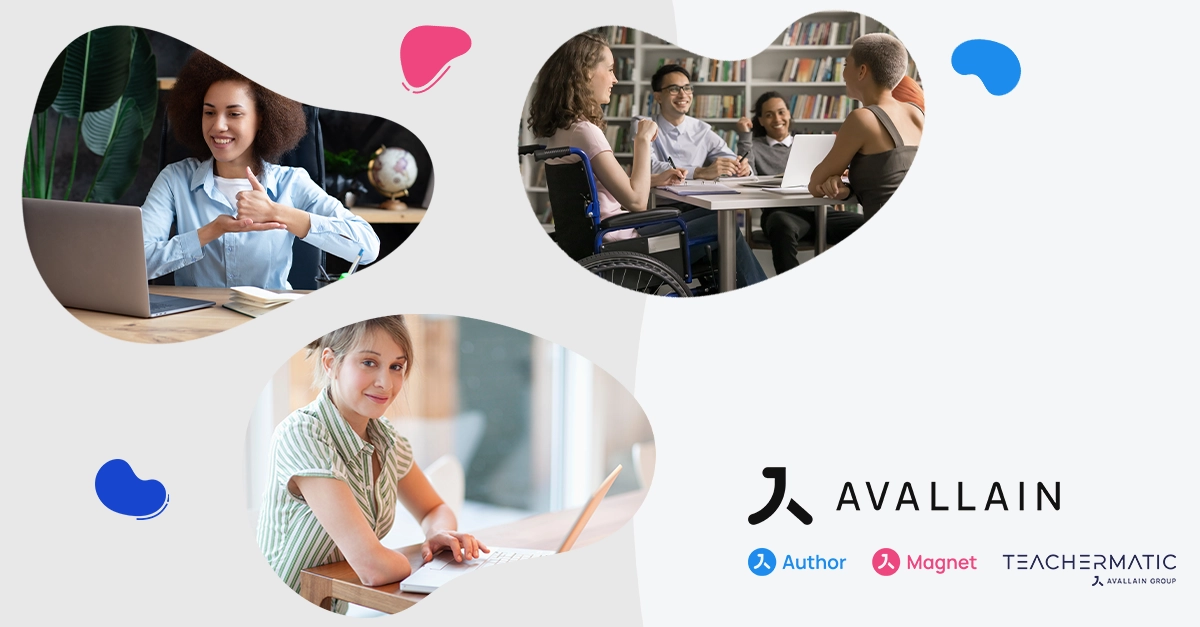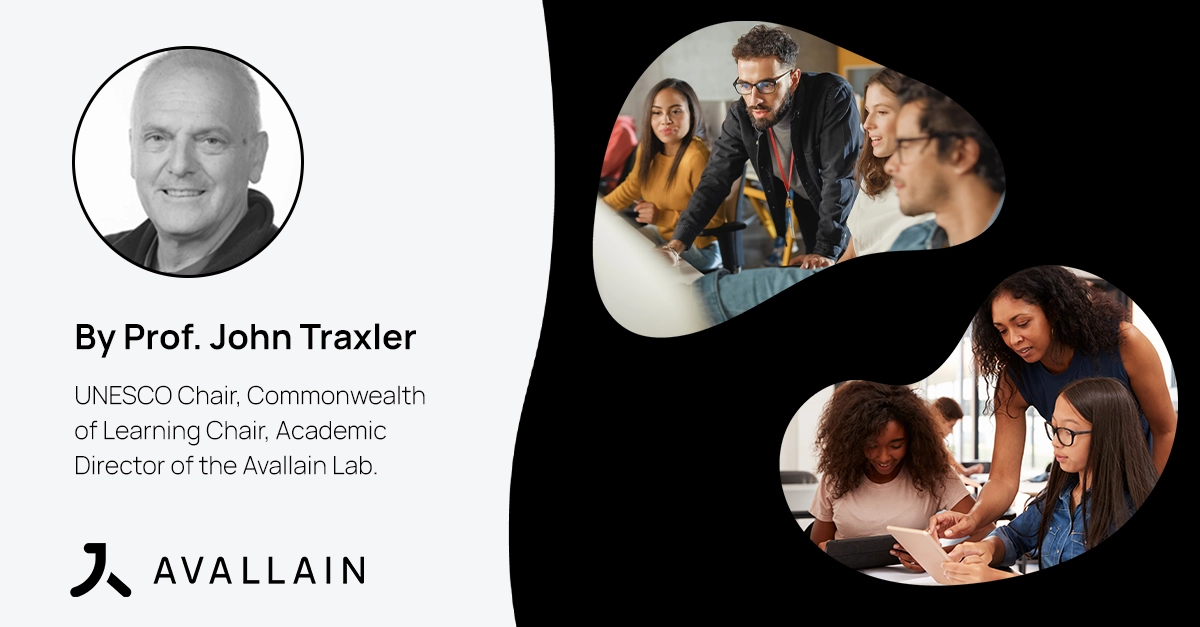
6 min read
2017/05/05
Even in our tech-savvy modern world, the term “big data” can divide opinions. To some, the term is synonymous with surveillance, to others it represents the unique opportunity to analyse and gain a thorough understanding of complex situations by means of technology. Within the educational sector in particular, big data can significantly improve the effectiveness of differentiated and individualised learning processes.
But how is it possible to observe the various ethical and legal restrictions of the international marketplace at the same time?
Information overload in the digital age
Detached from its moral and political connotations, the term “big data” simply describes sets of data which can only be processed by technological means. In most cases, the information is in a state of constant flux or it is too unstructured to be successfully processed by the human brain. Often, the datasets are also simply too large.
Only a few decades ago, this would have been an insurmountable problem, leading to the loss of valuable information. But today, even particularly large and complex datasets can be collected and processed thanks to advanced digital systems. Now more than ever, software is being used to perform tasks that are simply too difficult for humans to perform at the same level. Notably, such tasks include:
- Collecting vast datasets
- Analysing and correlating individual pieces of information
- Interpreting all available information
Processing information this way saves both time and resources – while yielding surprisingly precise results. One need only look at the institutions that already rely on such systems to realise just how useful big data processing can be.
The economic and social role of big data
Advertising companies were among the first to use computers to collect, analyse and process big data. This entails automatically correlating highly complex subjects such as personal thematic preferences as well as patterns of media consumption and purchasing behaviour. The resulting insights are then used to create advertising strategies designed to psychologically affect a target audience by catering to its specific communicative needs.
Today, even taxi companies rely on collecting and processing big data to optimise their workflow. And since the US election in late 2016, it has become obvious that big data is not only processed by big business, but by political and social entities as well. Big data has become an integral part of modern society, and it is a subject of much discussion in the educational sector as well.
Can the EdTech Industry take advantage of abundant information while avoiding the risks involved?
There are two major discussion points: complexity and the legality. Big data processing solutions are highly complex by nature, which is why there are ethical as well as legal considerations to be made. For example, many countries do not allow for large individual sets of learner data to be merged with each other for analysis, on grounds of privacy protection.
Of course, there are good reasons for extensive privacy protection legislature. For example, the ethical concerns over the complete surveillance of classrooms practised by some US start-ups are completely reasonable. However, prohibiting big data processing techniques such as merging learner data across municipal borders can cause the artificial intelligence behind the system to form conclusions based on insufficient information. Consequently, any resulting analysis of such a limited dataset would be distorted, negatively impacting the individual learning experience.
The Avallain solution – One comprehensive system, fully customisable
We at Avallain have been tackling the topic of “big data” for a very long time. How can the available big data be collected to improve individual learning experiences – while simultaneously observing ethical and legal restrictions, which may differ from country to country?
Does big data provide big advantages to e-learning?
One of the unique benefits of education technology is its ability to adjust to the needs and preferences of individual learners in order to support individualised and differentiated learning approaches even within heterogeneous groups. However, when developing our own system, we found that most contemporary tools are solely focused on collecting trivial information, such as counting click-through-rates via Google Analytics, collecting administrative statistics as well as individual test results and tracking the frequency in which learners use particular pieces of content. Using such tools, one may be able to calculate average scores, but it is impossible to easily determine which educational approach has most significantly supported a learner in their studies. Finding such information usually requires a lot of additional work on the part of educators.
Even simple tasks like merging large datasets across platforms and devices using xAPI has not yet become an established standard for these tools. Such a limited and unstructured approach to big data does not yield useful information; it only contributes to “data lakes“. This means that the software collects input and simply stores it without analysing or collating it. Because of limited resources, such information tends to only accumulate over time without ever being processed.
The Avallain system – Think big
Our software solution, first released in 2016, is the result of our observations. It was designed to process big data efficiently without crossing ethical boundaries. Our system is based on the very same philosophy that Avallain has been following for more than 10 years now. Combining the most advanced technologies with the maximum amount of user friendliness thanks to complete flexibility. Our system cannot only be adapted to the personal needs of individual users, but also to the ethical and legal restraints of any given country.
Our system combines an xAPI learning record store with additional event storage capabilities. Not only does this allow learner progress to be recorded, but it also allows any given event to be recorded, ranging from menu usage to voice recordings in interactive audio tasks. Such events are stored in a separate big data warehouse system and can be processed using any common business intelligence suite. We also focus on usability when retrieving information – the process is particularly quick and does not require any additional training. This allows for effective big data mining from the very first day of using our software, giving immediate answers to questions such as:
- Which content is especially popular?
- Which content is popular with which age group?
- Which content may be too hard or too easy?
- Which content yields the best learning results?
- Which channels of communication are being used within the learning platform?
Both the event storage system as well as the business intelligence suite can be completely customised according to the customer’s requirements. Our big data analysis system is compatible with database systems ranging from open source software to professional cloud storage solutions. In addition, it can operate with any of the most common analysis tools such as Amazon Elastic Map Reduce. Thanks to the cross-industry approach of our architecture and the established standards which it is based on, we can quickly adjust to future developments and new methods of big data analysis as well. These can be integrated into the software at any time, while remaining cost-efficient.
Responsible use of big data supports individual paths to learning success
Avallain provides systems for efficiently using big data in digital education – which is done without crossing any ethical or legal boundaries. Our intelligent systems offer educators, institutions and corporations the ability to collect, analyse and interpret information in a very cost-effective manner.
We have recognised that by using big data consistently and responsibly, we can revolutionise individualised and differentiated learning approaches. To learners, this paints a particularly bright future, as their education will be more individualised, more interesting and more effective thanks to big data.


